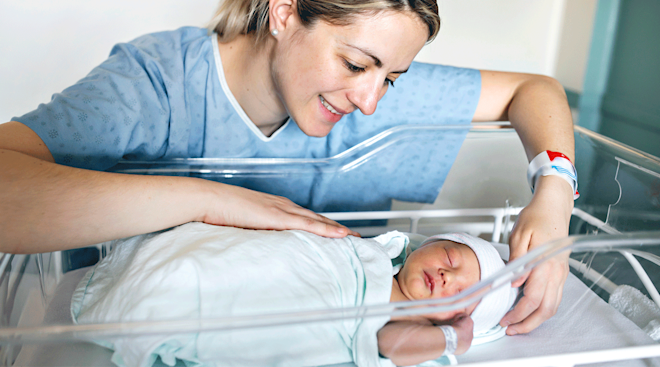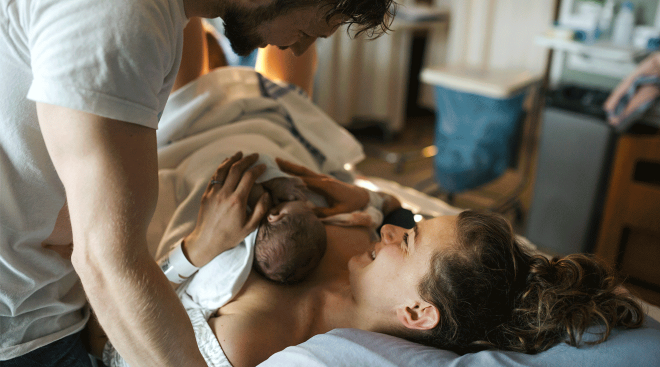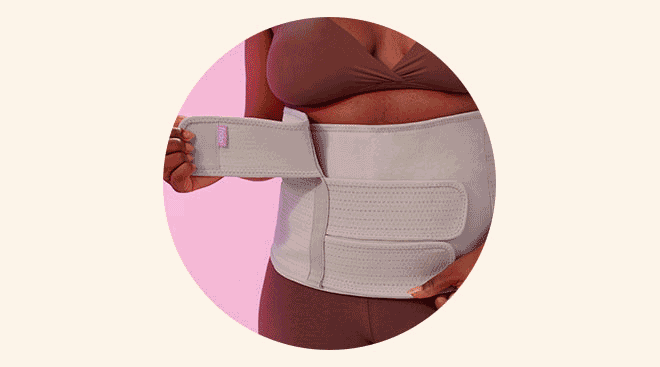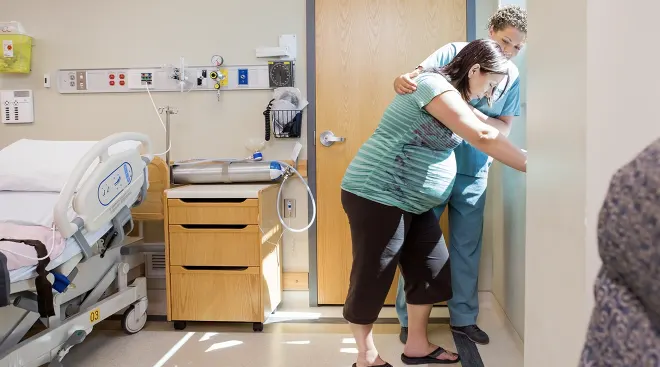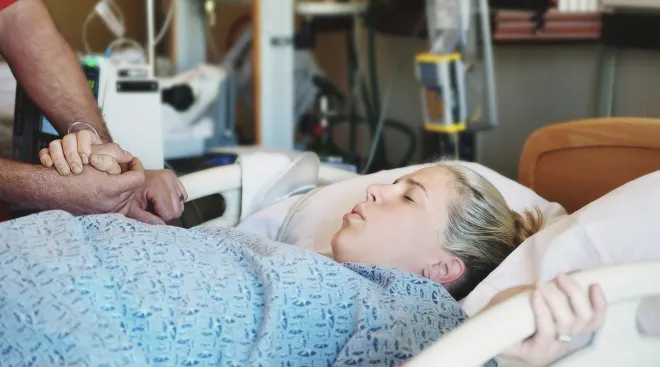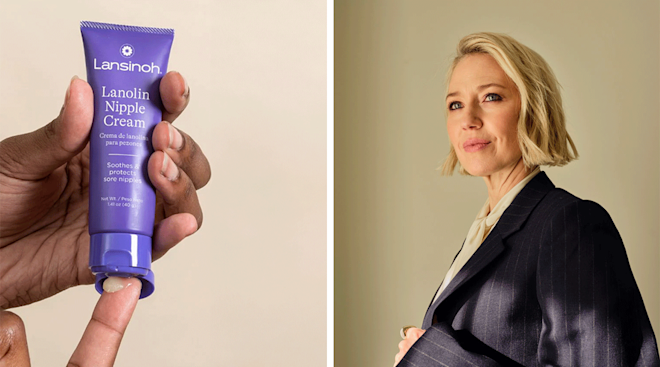Gestational Diabetes: Symptoms to Look for and How to Treat It
Gestational diabetes has become one of the most common pregnancy complications in the US, with about 7 percent of pregnant women developing the condition. But just because it’s more widespread doesn’t mean it comes without risks. So what is gestational diabetes—and how can you minimize your chances of getting it?
Gestational diabetes means your body can’t properly regulate your blood sugar levels while you’re pregnant—either because you don’t produce enough insulin or your body can’t properly use the insulin it does produce. That causes your blood sugar levels to spike when you eat, leading to a condition called hyperglycemia.
Most moms-to-be diagnosed with gestational diabetes experience diabetes only during pregnancy, and the condition clears up soon after birth. But 5 to 10 percent of women continue to have type 2 diabetes after pregnancy, and those whose diabetes clears up after childbirth are still at a 20 to 50 percent risk of developing type 2 diabetes within the next 10 years.
So why are doctors so concerned about this condition? “Gestational diabetes puts the mom and baby at increased risk for pregnancy complications,” says Sherry A. Ross, MD, a Santa Monica, California-based ob-gyn and author of She-ology: The Definitive Guide to Women’s Intimate Health. Period. and She-ology: the She-quel: Let’s Continue the Conversation. For moms, those possible complications include:
- High blood pressure
- Preeclampsia
- Preterm labor
- C-section
Gestational diabetes effects on baby can increase the risk of:
- Higher birth weight
- Shoulder dystocia (when the shoulders get stuck in the birth canal)
- Congenital malformations (such as abnormal spinal development)
- Heart disease
- Neural tube defects
- Stillbirth
- Low blood sugar
- Respiratory distress
- Longer stays in the NICU
One of the gestational diabetes causes is the surge of hormones that your body produces to help your pregnancy thrive. Those additional hormones can keep your body from using your insulin effectively to maintain the right blood sugar levels.
There are a number of risk factors for gestational diabetes. Your ob-gyn will likely monitor you for this type of diabetes during pregnancy if you:
- Are over 25 years old
- Are obese
- Have a family history of diabetes
- Had gestational diabetes in a previous pregnancy
- Previously gave birth to a baby who weighed over 9.5 pounds
- Previously had a stillborn baby
- Are black/African-American, Latina/Hispanic, Asian, Native American/Pacific Islander
Gestational diabetes symptoms can be subtle—or even nonexistent—and some can be mistaken for typical side effects of pregnancy, like the urge to pee frequently. Here are some possible signs of gestational diabetes that should be brought to your doctor’s attention:
- Blurred vision
- Tingling or numbness in the hands and/or feet
- Excessive thirst
- Frequent urination
- Sores that heal slowly
- Excessive fatigue
Experiencing gestational diabetes symptoms? Before you get an official diagnosis, your doctor will conduct tests to see how well your body manages blood sugar. Both tests involve drinking a sugary drink, then taking a series of timed blood tests to measure your blood glucose levels. The glucose challenge screening test is the first test, and it’s usually conducted in the second trimester for all moms-to-be, whether they’re exhibiting gestational diabetes symptoms or not. It serves to spot possible signs of diabetes during pregnancy. The glucose tolerance test is a more complex assessment that confirms a gestational diabetes diagnosis. It’s typically issued for moms-to-be with abnormal results from the glucose challenge screening.
The good news? One of the best forms of gestational diabetes treatment is the easiest: simple lifestyle changes. “If you’re diagnosed with gestational diabetes, a visit to a dietitian is important to help give you guidelines to create a low-carbohydrate and high-protein diet to control blood sugars,” Ross says. “You’ll also be given a daily exercise regimen to help control blood glucose levels until you deliver.” In addition, you’ll need to test your blood glucose levels with a simple finger-prick blood test before meals and an hour or two after meals.
If lifestyle changes don’t improve your blood sugar levels, your doctor may prescribe diabetes medications, such as glyburide tablets or insulin. “It’s important that this condition is treated early in the pregnancy,” says Sheela N. Magge, MD, MSCE, director of the division of pediatric endocrinology at Johns Hopkins Children’s Center, and studies in particular type 2 diabetes. “Patients should consult with their ob-gyn─and remain in close contact for the duration of the pregnancy─following their advice closely in order to maintain tight blood sugar control.”
After you give birth, your doctor will continue to monitor your blood sugar levels to make sure they return to normal.
While there’s no way to avoid gestational diabetes completely, a few things can minimize the chances of developing the condition.
• Start before you’re expecting. Make a point of eating nutritiously and reaching a healthy weight before you even start trying to conceive. “Preparing three to six months before getting pregnant is the first step in lowering your risk for gestational diabetes,” Ross advises. “Being overweight can affect your ability to get pregnant and to have a healthy pregnancy.”
• Go Mediterranean. “The Mediterranean diet has been embraced by the medical community as the model of healthy living,” Ross says. “Plant foods, fresh fruit, whole grains, fish, lean meats, unprocessed foods and healthy fats are the highlights of this diet.”
• Get moving. “As little as 30 minutes of moderately intense exercise a day can improve your health and well-being,” Ross says. “Exercise can reduce blood pressure, reduce blood sugar levels, lower cholesterol levels, control body weight and body fat and lower your risk of gestational diabetes and other pregnancy complications.” Aim to work out three to five times per week.
These lifestyle adjustments may seem basic, but science has shown they can have a huge impact on preventing gestational diabetes. A 2016 study published in the journal Diabetes Care found that when health-care professionals provided counseling on diet, exercise and weight control, the occurrence of gestational diabetes in high-risk women was reduced by 39 percent. In another study appearing in a 2017 issue of the American Journal of Obstetrics & Gynecology, obese women who exercised (in this case, they used stationary bikes) at least 30 minutes, three times per week during pregnancy nearly halved their risk for gestational diabetes (22 percent versus 40.6 percent).
Expert bios:
Sherry A. Ross, MD, is an ob-gyn and women’s health expert at Providence Saint John’s Health Center in Santa Monica, California, and author of She-ology and She-ology, the She-quel: let’s Continue the Conversation.
Sheela N. Magge, MD, MSCE, director of the division of pediatric endocrinology at Johns Hopkins Children’s Center, and studies in particular type 2 diabetes.
Please note: The Bump and the materials and information it contains are not intended to, and do not constitute, medical or other health advice or diagnosis and should not be used as such. You should always consult with a qualified physician or health professional about your specific circumstances.
Navigate forward to interact with the calendar and select a date. Press the question mark key to get the keyboard shortcuts for changing dates.


































